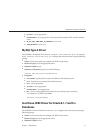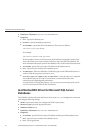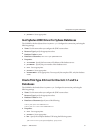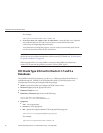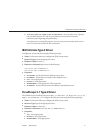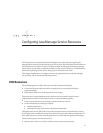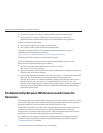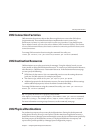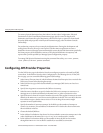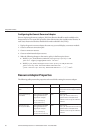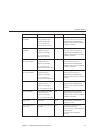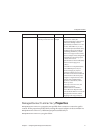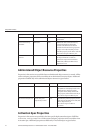
JMS Connection Factories
JMS connection factories are objects that allow an application to create other JMS objects
programmatically. These administered objects implement the ConnectionFactory,
QueueConnectionFactory, and TopicConnectionFactory interfaces. Using the Enterprise
Server Admin Console, you can create, edit, or delete a JMS Connection Factory. The creation
of a new JMS connection factory also creates a connector connection pool for the factory and a
connector resource.
To manage JMS connection factories using the command-line utility, use
create-jms-resource, list-jms-resources,ordelete-jms-resource command.
JMS Destination Resources
JMS destinations serve as the repositories for messages. Using the Admin Console, you can
create, modify or delete JMS Destination Resources. To create a new JMS Destination Resource,
select Resources >JMS Resources >Destination Resources. In the Destination Resources page,
you can specify the following:
■
JNDI Name for the resource. It is a recommended practice to use the naming subcontext
prex jms/ for JMS resources. For example: jms/Queue.
■
The resource type, which can be javax.jms. Topic or javax.jms.Queue.
■
Additional properties for the destination resource. For more details about all these settings
and the additional properties, refer to the Admin Console Online Help.
To manage JMS destinations using the command-line utility, use create-jms-resource,or
delete-jms-resource command.
Tip – To specify the addresslist property (in the format
host:mqport,host2:mqport,host3:mqport) for asadmin create-jms-resource command,
escape the : by using \\. For example, host1\\:mqport,host2\\:mqport,host3\\:mpqport.
For more information on using escape characters, see the asadmin(8) man page.
JMS Physical Destinations
For production purposes, always create physical destinations. During the development and
testing phase, however, this step is not required. The rst time that an application accesses a
destination resource, Message Queue automatically creates the physical destination specied by
the Name property of the destination resource. The physical destination is temporary and
expires after a period specied by a Message Queue conguration property.
JMSPhysicalDestinations
Chapter4 • ConguringJavaMessage ServiceResources 65



